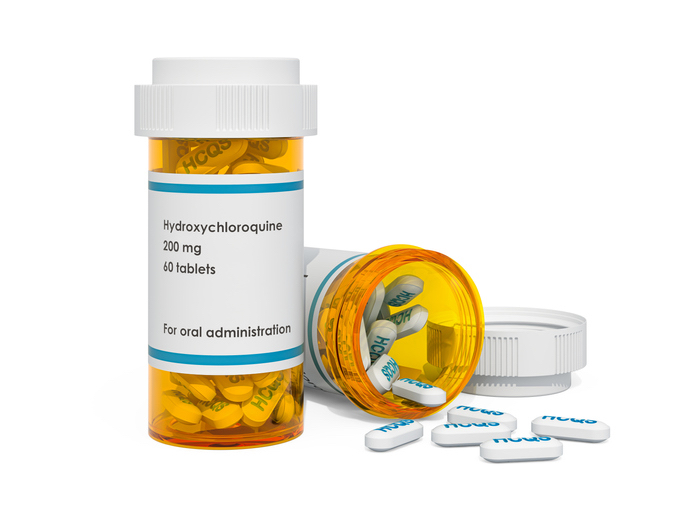JAMA Network, an influential medical journal, published a study discrediting the early use of hydroxychloroquine (HCQ)—a study involving 132 people.
One day later, a “meta-analysis” of 5,577 patients in trials showed early HCQ is linked to a 24 percent reduction in COVID-19 illness, hospitalization, and death.
The authors of the JAMA study, “Efficacy and Safety of Hydroxychloroquine vs. Placebo for Pre-exposure SARS-CoV-2 Prophylaxis Among Health Care Workers,” state the difference of the 132 people who were either treated with HCQ or placebo was so insignificant, the study had to be terminated early.
“Among hospital-based health care workers, daily hydroxychloroquine did not prevent SARS-CoV-2 infection,” the report states.
The authors state, however, the trial may have been “underpowered to detect a clinically important difference.”
The study is at least the third time a major medical journal published research downplaying the effectiveness of early HCQ. JAMA published another study on May 11, preceded by a similar one on May 7, in the New England Journal of Medicine (NEJM). On May 22, the Lancet had to retract a negative HCQ study when the authors could not account for the source of their data. A study by the Recovery Collaborative Group in NEJM October 8 (Recovery Collaborative Group) concluded hospitalized patients who received HCQ did not have a lower death rate at 28 days but included patients very close to death.
“My personal conclusion is that the Recovery trial was a wonderful safety stress test for high dose HCQ in very ill people,” said Peter McCullough, M.D., a cardiologist and researcher at Baylor University who is a leading proponent of HCQ. “Indeed, HCQ at very high doses was safe even in this very ill population.”
No other treatment for COVID-19 has elicited such divergent opinion. President Trump has touted HCQ as a safe, inexpensive, and effective treatment to combat COVID-19 while the U.S. Food and Drug Administration (FDA) and the National Institutes of Health have issued warnings about HCQ in treating the virus.
HCQ Proof in Numbers
On October 1, four physicians released a “preprint” (not peer-reviewed) study in MedRXIV of a “meta-analysis” of five randomized clinical trials, involving 5,577 patients who were either given HCQ or a placebo for outpatient, early and post-treatment of COVID-19. The analysis reviewed all side effects and adverse reactions. The results showed HCQ was “associated with a 24 percent reduction in COVID-19 illness, hospitalization, or death.”
“Our meta-analysis shows that even with the known weaknesses of how all the outpatient randomized trials have been carried out to date, the average result is a statistically significant benefit of HCQ use,” co-author Harvey Risch, M.D., PhD., told Health Care News.
“The last argument for those blocking the early use of HCQ has been quashed,” wrote McCullough, who co-authored the report, in an email about the study sent to more than 156 physicians, reporters and policy experts.
Risch said their work is the “final proof” that Anthony Fauci, M.D., director of the National Institute of Allergy and Infectious Diseases, and Stephen Hahn, M.D., director of the FDA, have demanded and something that is not a surprise.
“To date, there are seven controlled non-randomized outpatient trials, every one of which has shown, under proper statistical control of biases, the significant lifesaving benefit of HCQ use,” Risch said. “There is a whole medical literature of hundreds of drugs and diseases over thousands of studies, showing that observational and non-randomized studies yielded virtually identical results compared to randomized studies of the same relationships. The body of evidence now proving the efficacy of early outpatient HCQ use is undeniable.”
The recent JAMA study provides no information, Risch says.
“With four unexposed patients and four exposed patients, it was unwarranted to (be) published in a high-visibility medical journal that conceives its role as important for determining medical policy,” Risch said.
Risch said the JAMA results were so small, they would not have had any effect on his study’s analysis.
AnneMarie Schieber (amschieber@heartland.org) is managing editor of Health Care News.
Internet info:
Joseph Ladapo, M.D., PhD., John E. McKinnon, M.D. MSc, Peter A McCullough, M.D., PhD., Harvey A. Risch, M.D., PhD., “Randomized Controlled Trials of Early Ambulatory Hydroxychloroquine in the Prevention of COVID-19 Infection, Hospitalization, and Death: Meta-Analysis,” MedRXIV (pre-print), September 30, 2020: https://www.medrxiv.org/content/10.1101/2020.09.30.20204693v1
